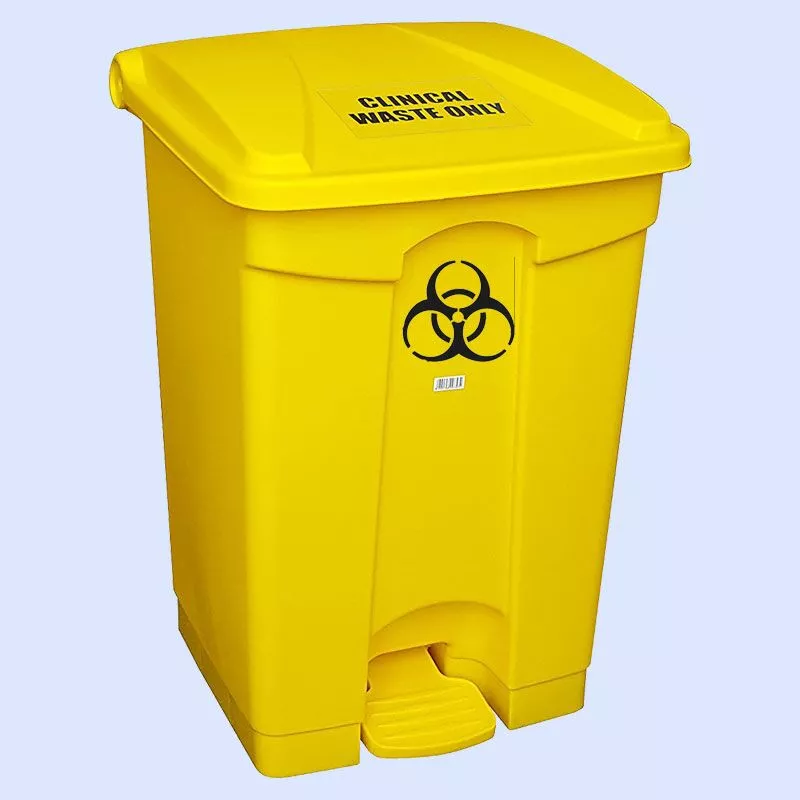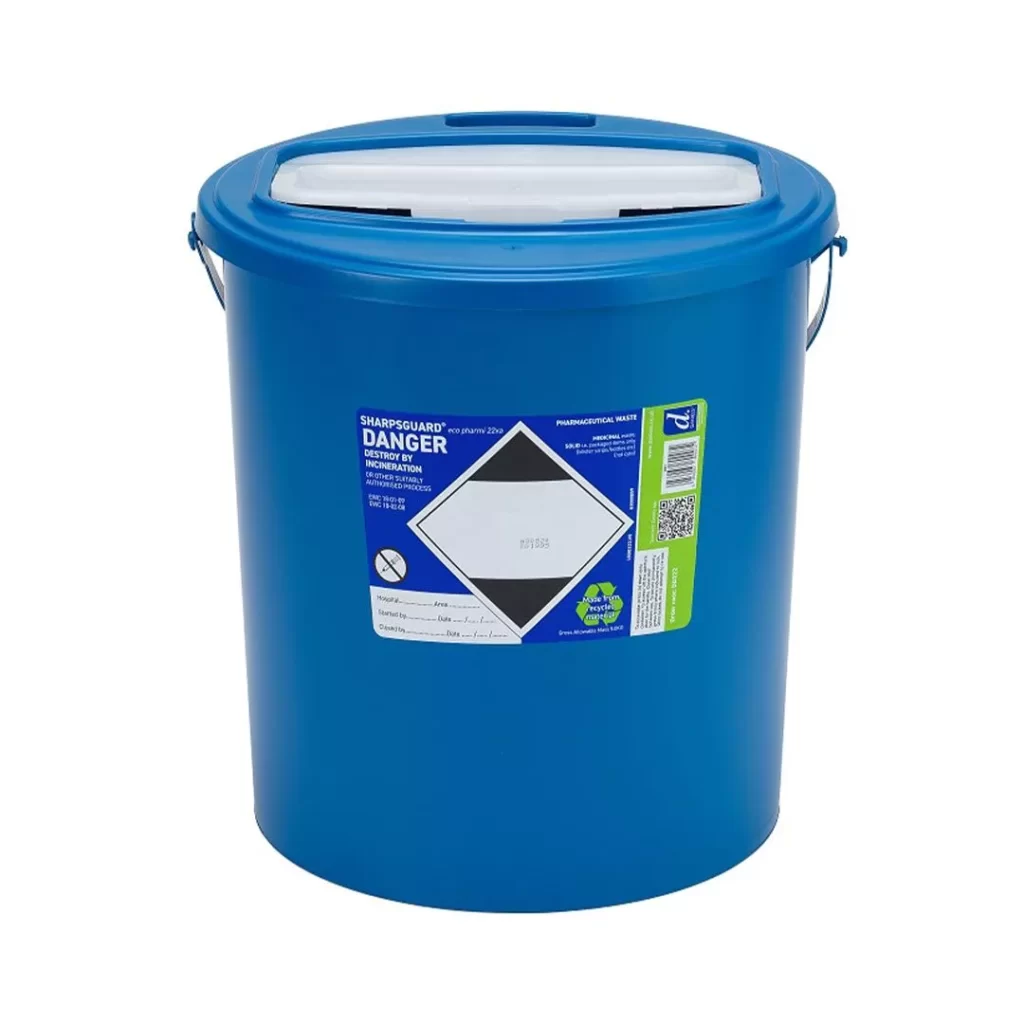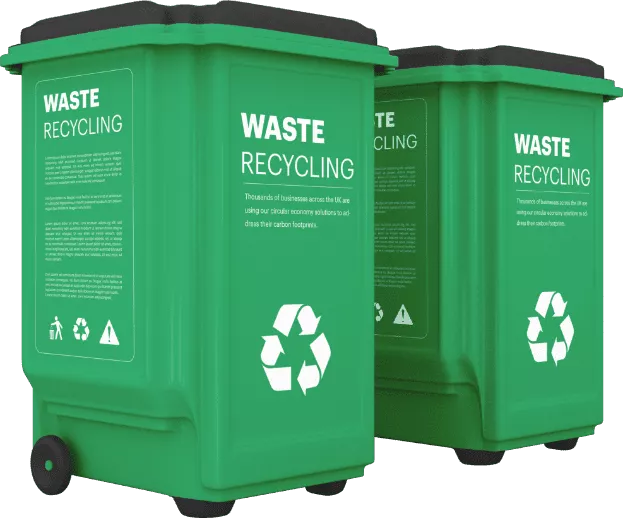When it comes to recycling Clinical Waste Management, there are a few things you need to take into consideration. What can be recycled? What can’t be recycled?
How do you recycle it? In this blog post, we will answer all those questions and more. We will explore what can be recycled, how to recycle it, and what the benefits are of recycling clinical waste collection.
Read on to learn more!

What Should You Recycle in Clinical Waste Management?
Clinical waste management is a process of handling, managing, and disposing of medical waste in a safe and sanitary manner. It is important to recycle clinical waste solutions to reduce the amount of waste that goes to landfill sites.
There are four main types of clinical waste:
Infectious Waste: This includes any waste that could potentially cause infection, such as used dressings or needles.
Non-Infectious Wastes: This includes items such as bandages and plaster casts.
Hazardous Wastes: These are wastes that are flammable, corrosive, or toxic, such as chemicals or sharps.
Radioactive Wastes: These include items that emit radiation, such as X-ray films.
The first step in recycling clinical waste is to segregate it into these four categories. Infectious and hazardous wastes should be disposed of immediately, while non-infectious and radioactive wastes can be stored until they can be recycled.
Once the clinical waste has be segregate, it can be recycle in a number of ways. Non-infectious wastes can be incinerate, while infectious and hazardous wastes can be autoclave or treat with chemicals. Radioactive wastes can be compact and store safely until they decay.
The Importance Of Recycling Clinical Waste
When it comes to recycling clinical waste, there are a few things that you should keep in mind. First and foremost, it’s important to recycle clinical waste in order to reduce the amount of waste that ends up in landfills.
Not only does this help reduce pollution, but it also helps conserve resources. In addition to reducing landfill waste, recycling clinical waste can also help reduce the spread of disease.
Many diseases can be spread through contact with contaminated medical waste, so by recycling this type of waste properly; you can help prevent the spread of these diseases.
Finally, recycling the disposal of clinical waste can also save money. By recycling medical supplies and equipment, hospitals and other healthcare facilities can save money on their overall costs.
In some cases, these savings can be pass on to patients in the form of lower prices for medical care. Overall, recycling clinical waste is an important way to reduce pollution, conserve resources, and prevent the spread of disease. If you’re not already recycling your clinical waste, start today!
What Can Be Recycled?
In many cases, clinical waste management can be recycled. This includes items such as bandages, gloves, and syringes. However, it is important to check with your local recycling facility to see what items they accept.
Some other items that can be recycle include:
-Paper towels
-Cardboard boxes
-Packing peanuts
-Plastic bags
-Styrofoam
How to Recycle Clinical Waste
When it comes to recycling clinical waste, there are a few things you need to keep in mind. First, you need to make sure that the waste is properly segregate.
This means that you need to separate out any infectious or sharp waste from general waste. Once the waste is properly segregate, you can then start thinking about what can be recycle and what needs to be dispose of.
There are a few options for recycling clinical waste. One option is autoclaving, which uses high pressure and temperature to sterilise the waste.
This method is often use for items such as syringes and needles. Another option is incineration, which completely burns the waste material. This method is typically use for items that cannot be decontaminate, such as body parts or fluids.
If you are unsure about how to recycle a particular type of clinical waste, you can always contact your local Waste Management Company for guidance.
Clinical Waste Management and Creating a Safe Environment
There are many types of clinical waste, and it is important to know which items can be recycle and which should be dispose of in other ways.
Sharps waste, for example, should never be place in a recycling bin. This type of waste includes needles, lancets, and other sharp objects that could puncture the recycling bag and injure someone.
Instead, sharps waste should be place in a designate sharps container for safe disposal. Pharmaceuticals are another type of clinical waste that should not be place in the regular trash or recycling.
These wastes can contaminate water supplies and pose a danger to people and animals if they are not properly dispose of. The best way to dispose of unwant or expire medications is to take them to a pharmaceutical take-back program.
Finally, medical equipment such as oxygen tanks and IV bags cannot be recycle but must be dispose of through special programs. These items often contain hazardous materials that require special handling.
Five Ways A Dental Waste Transfer Helps With Proper Management
1. Dental waste transfer helps to ensure that all waste is properly segregate and label.
2. Dental waste transfer helps to prevent cross contamination of dental materials.
3. Dental waste transfer helps to reduce the amount of waste that is to landfills.
4. Dental waste transfer helps to save money on disposal costs.
5. Dental waste transfer helps to promote recycling and proper management of dental materials.
The Benefits of Responsible Medical Clinical Waste Management
In any clinical waste service, from a small doctor’s office to a large hospital, proper medical waste management is essential to protecting both patients and staff.
Medical waste can harbour dangerous bacteria and viruses that can cause serious illness or even death. In addition, medical waste disposal is regulate by state and federal laws design to protect the environment.
While there are many benefits of responsible medical clinical waste management, some of the most important include:
Reducing the risk of disease transmission: By properly disposing of medical waste, you can help reduce the spread of dangerous diseases.
Protecting the environment: Improper disposal of medical waste can contaminate soil and water supplies. By recycling clinical waste responsibly, you can help protect the environment from harmful chemicals and pollutants.
Complying with regulations: All healthcare facilities are subject to strict state and federal regulations governing the disposal of medical waste. By recycling clinical waste responsibly, you can help your facility avoid costly fines and penalties.

How To Properly Dispose Of Clinical Waste
There are four primary methods of clinical waste disposal: incineration, autoclaving, landfilling, and chemical disinfection.
Incineration: Incineration is the most common method of clinical waste disposal. It involves burning the waste at a high temperature to kill any microorganisms present. The resulting ash is then landfill.
Autoclaving: Autoclaving is a process that uses steam to sterilise medical instruments and other materials. It is an effective method for killing microorganisms, but it can be expensive and time-consuming.
Landfilling: Landfilling is the least preferred method of clinical waste disposal because it can contaminate groundwater and soil. However, if done properly, it can be safe and effective.
Chemical Disinfection: Chemical disinfection involves using chemicals to kill microorganisms present in clinical waste. This method is less common than incineration or autoclaving, but it can be effective if used correctly.
Learning Your New Clinical Waste Management System
If you have recently installed a new clinical waste management system, you will need to learn how to use it properly. This process may vary depending on the system that you have chosen, but there are some general tips that can help.
Finally, put your new system into action! Start by collecting waste in the appropriate containers and then transporting it to the designated disposal site. Be sure to follow all of the steps outlined in your instruction manual to ensure safe and effective operation of your new system.
Conclusion
There are many items that can be recycle in a clinical setting, from plastics to paper products. By recycling these items, you can help reduce the amount of waste that goes into landfills and help preserve our natural resources.
Not sure what can be recycle in your area? Check with your local recycling centre to find out what materials they accept.

